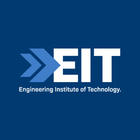Undergraduate Certificate in Electrical Engineering
Undergraduate Certificate in Electrical Engineering
Electrical engineers are responsible for designing new systems, solving problems, testing equipment, and working on a wide range of components and systems, including communications systems, power plants, electrical machines, navigation systems, and electrical systems for automobiles and aircraft. Upon completion of this undergraduate certificate, you will have fundamental knowledge, skills,…
Categories
COURSE DESCRIPTION
Electrical engineers are responsible for designing new systems, solving problems, testing equipment, and working on a wide range of components and systems, including communications systems, power plants, electrical machines, navigation systems, and electrical systems for automobiles and aircraft. Upon completion of this undergraduate certificate, you will have fundamental knowledge, skills, and understanding of the electrical engineering discipline. You will be able to apply fundamental physics, chemistry, electrical circuit theory, and analysis, demonstrate scientific, mathematical, contextual factors and design practice knowledge that has been contextualized for engineering applications.
Program Details
The field of engineering concerned with the study and application of electricity and electromagnetism is electrical engineering. Essential to our modern infrastructure and conveniences, electrical engineers employ their skills across a large number of specializations, including the design of household appliances, lighting, building wiring, telecommunication systems, robots, power generation, transmission, distribution, and utilization.
With this qualification, you will have acquired the essential knowledge which underpins both this and other fields of engineering.
Program Structure
You must complete 12 credit points comprising four core units. There are no electives in this program. The full-time program duration is six months over 1 semester (or part-time equivalent). For further study, graduates may consider EIT’s Bachelor of Science (Electrical Engineering).
Potential Job Outcomes
Potential job roles include engineering and management positions in the following areas of expertise:
Electrical system planning, design, and development
Power supply, distribution, and transmission
Electrical commissioning and power production management
Renewable energy
Electrical instrumentation and control
Electronics research, design, and testing
Operations, maintenance, field services, and technical support
Electrical project management and business development
Radio and television broadcasting
Mining
Advanced Automation & Robotic Systems
Space Defense Systems
REQUIREMENTS
Entry is available to applicants who hold one of the following:
A Year 12 Australian Senior Certificate of Education (or equivalent for International Students), completed within the past 3 years, with a minimum score of 60% in Maths.
Applicants who have completed Year 12 (or equivalent for International Students) more than 3 years ago are required to also demonstrate 2 years of relevant work experience in the field of study applied for; OR
A relevant Engineering AQF Certificate IV (or equivalent overseas qualification) with successful completion of all Maths units/modules and 2 years relevant work experience in the field of study applied for; OR
An Engineering AQF Diploma (or higher) (or equivalent overseas qualification) with successful completion of all Maths units/modules.
English Language Proficiency Requirements:
Entry to this course requires demonstration of English language proficiency at the level of an IELTS overall score of at least 6.0 (with no individual band score less than 5.5).
EDUCATIONAL INSTITUTION
The Engineering Institute of Technology (EIT) delivers industry driven programs to equip its students with the skills required in the real industrial world. Its study options are available across Perth and Melbourne; and include classroom sessions, practical lab exercises, assessments, class discussions and self-study. Additionally, students enjoy access to industry experts based around the globe through live and interactive online presentations. All EIT programs provide access to remote laboratories and cutting-edge simulation software. Hands-on laboratory practicals are an essential component of EIT’s programs to ensure students put theory into practice. These hands-on workshops cover the major discipline-specific applied skills required for competency in engineering practice.




